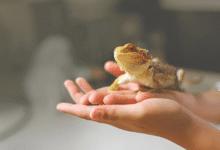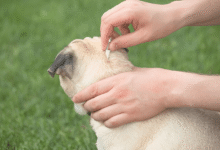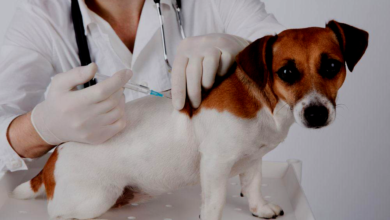
Eco-Friendly Pet Care: 7 Easy Swaps You Can Make Today
Eco-friendly pet care made simple. Discover 7 sustainable swaps for a greener pet lifestyle today. Better for pets & planet.
Eco-friendly pet care is more than just a trend it’s a necessary shift toward sustainability for pet owners who want to reduce their environmental impact. Traditional pet products, from plastic toys to chemical-laden grooming supplies, contribute to pollution and harm ecosystems. Fortunately, making simple, eco-conscious swaps can significantly lower your pet’s carbon pawprint while keeping them happy and healthy.
In this guide, we’ll explore seven effortless changes you can implement today to embrace sustainable pet ownership. Whether it’s switching to biodegradable waste bags or choosing organic pet food, each small step makes a difference. By adopting these eco-friendly pet care habits, you’ll not only protect the planet but also provide a safer, greener lifestyle for your furry friend.
Eco-Friendly Pet Care
Swap Plastic Toys for Sustainable Alternatives
Pet toys are essential for mental stimulation and exercise, but most are made from non-recyclable plastics. Instead, opt for Eco-Friendly Pet Care toys crafted from natural rubber, hemp, or recycled materials. Brands now offer chew toys made from durable bamboo or upcycled fabrics, reducing landfill waste. Another great alternative is DIY toys—old t-shirts can be braided into ropes, and cardboard boxes make excellent puzzle toys. These sustainable pet products are safer for your pet and the planet.
Choose Biodegradable Poop Bags
Traditional plastic poop bags take hundreds of years to decompose, contributing to pollution. Switching to biodegradable poop bags made from plant-based materials ensures they break down naturally. Some brands even offer compostable options, though these should only be used in designated compost systems. If you have a backyard, consider a pet waste composter, which safely breaks down waste without harming the environment. This small change can significantly reduce plastic pollution.
Opt for Organic and Natural Pet Food
Many commercial pet foods contain artificial additives and unsustainable meat sources. Organic pet food, made from ethically sourced ingredients, is better for your pet’s health and the environment. Look for brands that use free-range meats and plant-based proteins to lower carbon emissions. You can also reduce packaging waste by buying in bulk or choosing brands that use recyclable pet food packaging. Some companies even offer zero-waste pet food in reusable containers.
Use Eco-Friendly Pet Care Grooming Products
Traditional pet shampoos often contain harsh chemicals that harm waterways. Switching to natural pet shampoo with organic ingredients ensures a safer bath time. Look for products with plant-based cleansers and essential oils instead of sulfates and parabens. Additionally, bamboo pet brushes are a great alternative to plastic ones. They’re durable, biodegradable, and gentle on your pet’s skin.
Switch to a Recycled or Hemp Pet Bed
Most pet beds are made from Synthetic fiber that don’t break down easily. Instead, choose Eco-Friendly Pet Care beds made from recycled fabrics or hemp. These materials are breathable, durable, and sustainable. If you’re crafty, repurpose old blankets and pillows to create a cozy bed. This reduces textile waste and gives a second life to unused household items.
Reduce Waste with Cloth Diapers and Reusable Pads
For pets with incontinence or training needs, disposable diapers and pads create excessive waste. Reusable pet diapers made from washable fabric are a greener choice. They’re cost-effective and reduce landfill contributions. Similarly, washable pee pads made from absorbent, quick-dry materials are perfect for puppies and senior pets. Simply toss them in the laundry instead of throwing them away.
Adopt Sustainable Flea and Tick Prevention
Choose Plant-Based Repellents Over Harsh Chemicals
Conventional flea treatments often contain pesticides like permethrin or fipronil, which can harm pets and ecosystems. Instead, opt for natural repellents with ingredients like neem oil, cedarwood, or lemongrass essential oils, which deter pests without toxicity. Look for EPA-certified botanical sprays that are effective yet gentle.
Use Food-Grade Diatomaceous Earth for Natural Pest Control
Food-grade diatomaceous earth (DE) is a fine, fossilized powder that dehydrates fleas and ticks on contact. Lightly dust your pet’s bedding, carpets, and fur (avoiding eyes and nose) to create a chemical-free barrier. Unlike synthetic pesticides, DE is safe for pets and humans when used correctly.
Maintain a Clean Living Space to Prevent Infestations
Regularly vacuum carpets, wash pet bedding, and groom your pet with a fine-toothed flea comb to remove pests before they multiply. Fleas thrive in warm, humid environments, so keeping your home dry and clutter-free reduces their breeding grounds naturally.
Try Flea-Repelling Collars Made with Essential Oils
Instead of plastic collars loaded with pesticides, choose flea-repelling collars infused with citronella, eucalyptus, or lavender oil. These naturally deter pests while being safer for your pet’s skin and the environment. Some brands even use biodegradable materials for extra sustainability.
Support Your Pet’s Immune System with a Healthy Diet
A strong immune system helps pets resist fleas and ticks naturally. Feed your pet a balanced, high-quality diet rich in omega-3 fatty acids and probiotics, which promote healthy skin and coat. Some supplements, like brewer’s yeast or apple cider vinegar, may also help repel pests when added to meals in small amounts.
Create a Pest-Resistant Yard with Natural Landscaping
Plant flea-repelling herbs like rosemary, mint, or chamomile in your garden to deter pests naturally. Avoid chemical lawn treatments instead, use nematodes (microscopic worms) that feed on flea larvae in soil. Keeping grass trimmed and removing leaf litter also reduces tick habitats.
Bathe Pets with Natural, Pest-Fighting Shampoos
Regular baths with oatmeal or tea tree oil shampoos (in safe dilutions) can soothe irritated skin and remove fleas. Always use warm (not hot) water and a gentle, sulfate-free formula to maintain your pet’s skin barrier while washing away pests.
Read More: The Importance of Regular Vet Visits What Every Pet Parent Should Know
Conclusion
Eco-friendly pet care isn’t just beneficial for the planet it creates a healthier, safer environment for your furry companion too. By making simple swaps like choosing biodegradable waste bags or natural grooming products, you’re reducing plastic pollution and minimizing exposure to harmful chemicals. These small changes add up to make a significant difference in creating a more sustainable future for pets and people alike.
Remember, transitioning to green Eco-Friendly Pet Care doesn’t have to be overwhelming. Start with one or two swaps and gradually incorporate more Eco-Friendly Pet Care into your routine. Every sustainable choice you make helps protect our planet while ensuring your pet enjoys a happy, toxin-free life. Together, we can pave the way for responsible pet ownership that benefits both animals and the environment.
FAQs
What is eco-friendly pet care?
Eco-friendly pet care involves using sustainable products and practices that minimize environmental impact, such as biodegradable waste bags and organic pet food.
Are natural pet grooming products effective?
Yes, plant-based shampoos and conditioners clean effectively without harsh chemicals, making them Eco-Friendly Pet Care and waterways.
How can I reduce waste from pet toys?
Opt for toys made from natural materials like hemp or recycled fabrics, or repurpose household items into DIY toys.
Is organic pet food worth the cost?
Organic pet food avoids pesticides and synthetic additives, supporting your pet’s health and reducing environmental harm from industrial farming.
What’s the best alternative to plastic poop bags?
Biodegradable or compostable bags made from plant-based materials break down naturally, unlike conventional plastic bags that linger in landfills.







